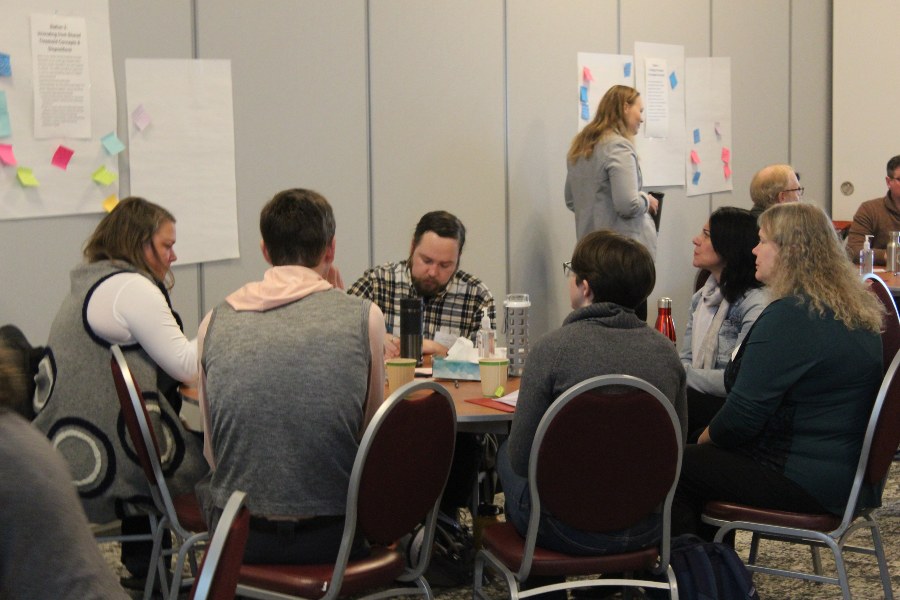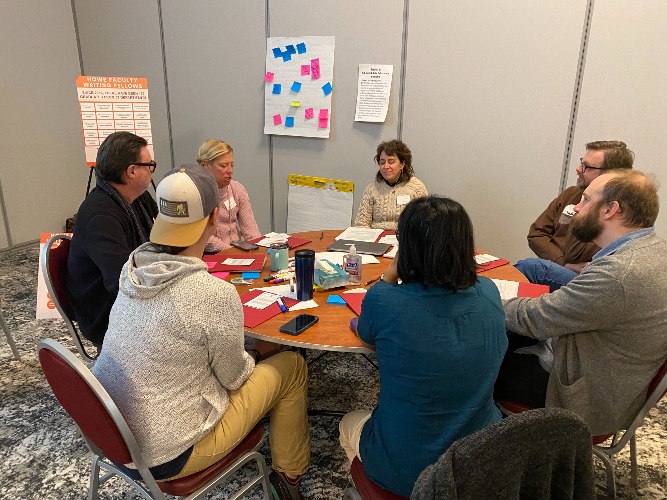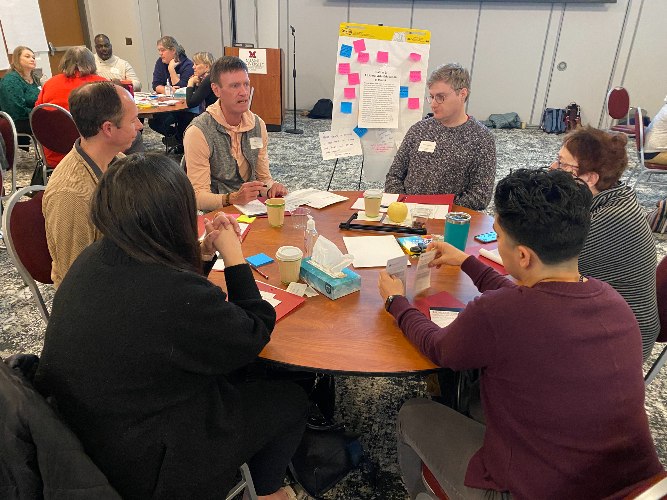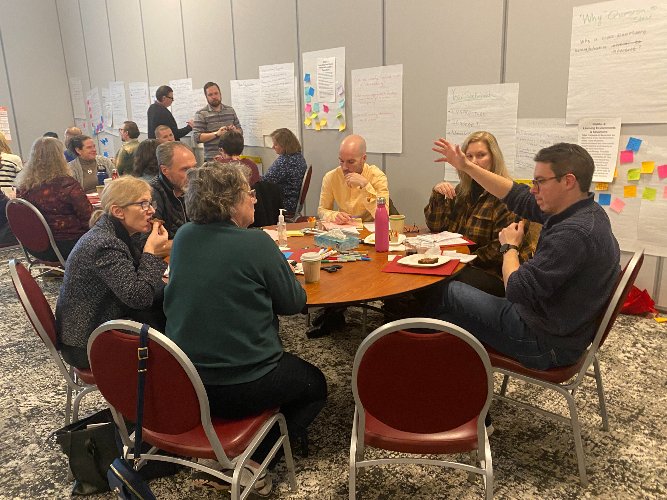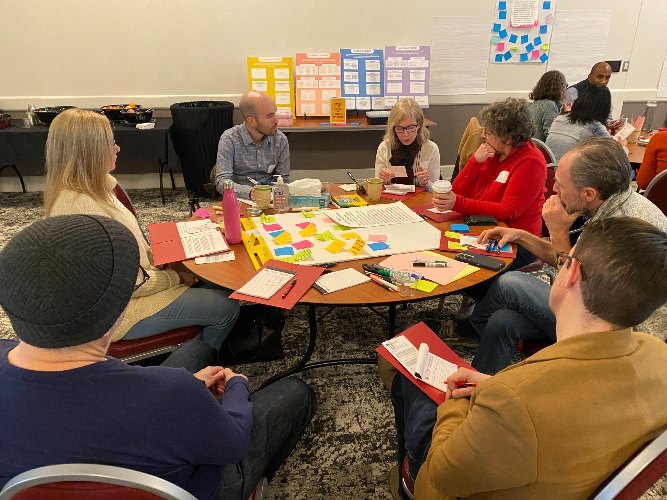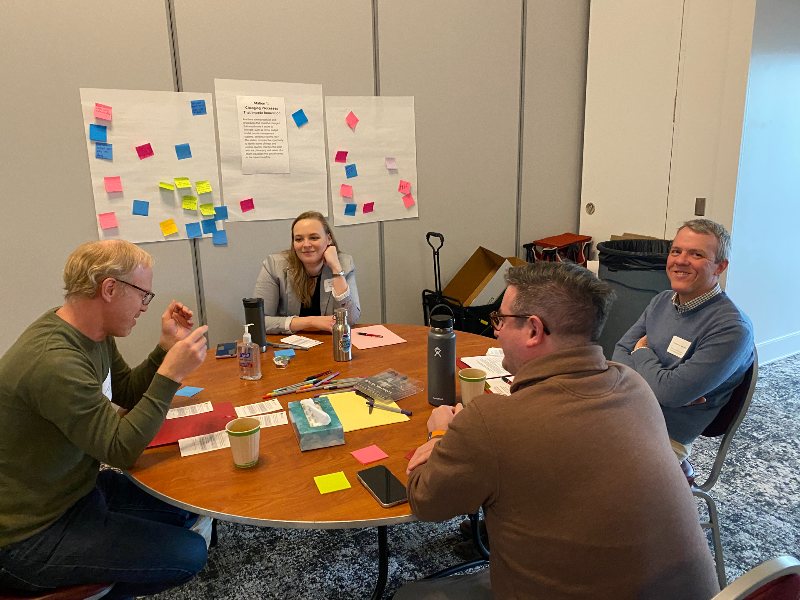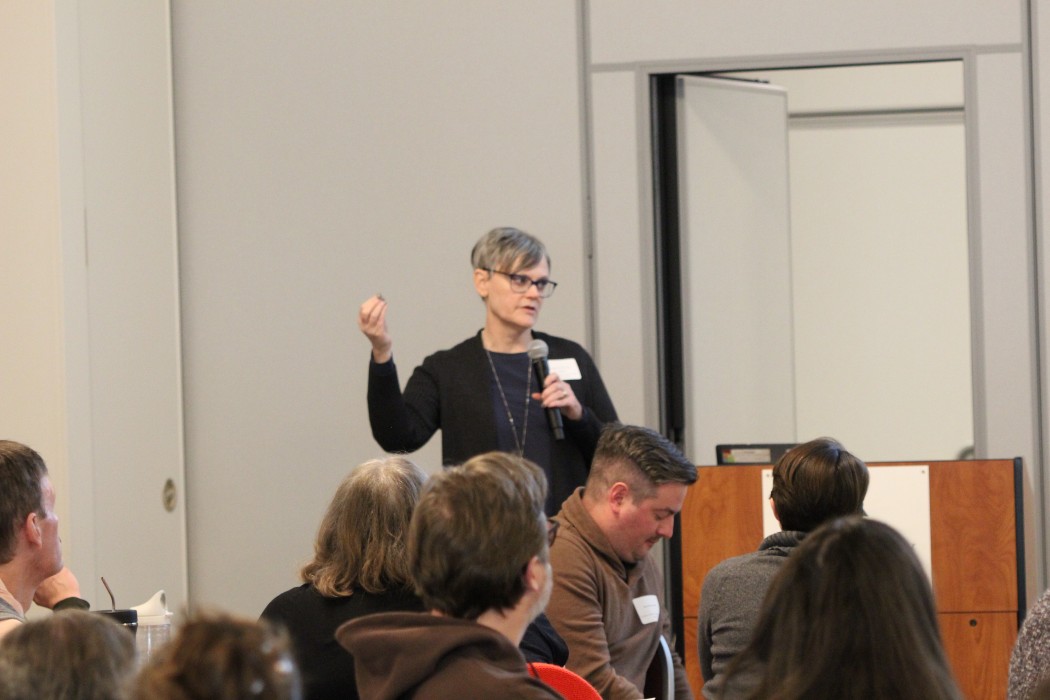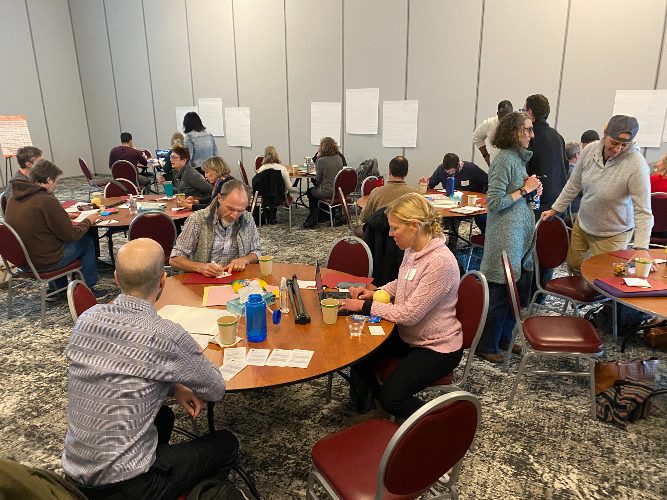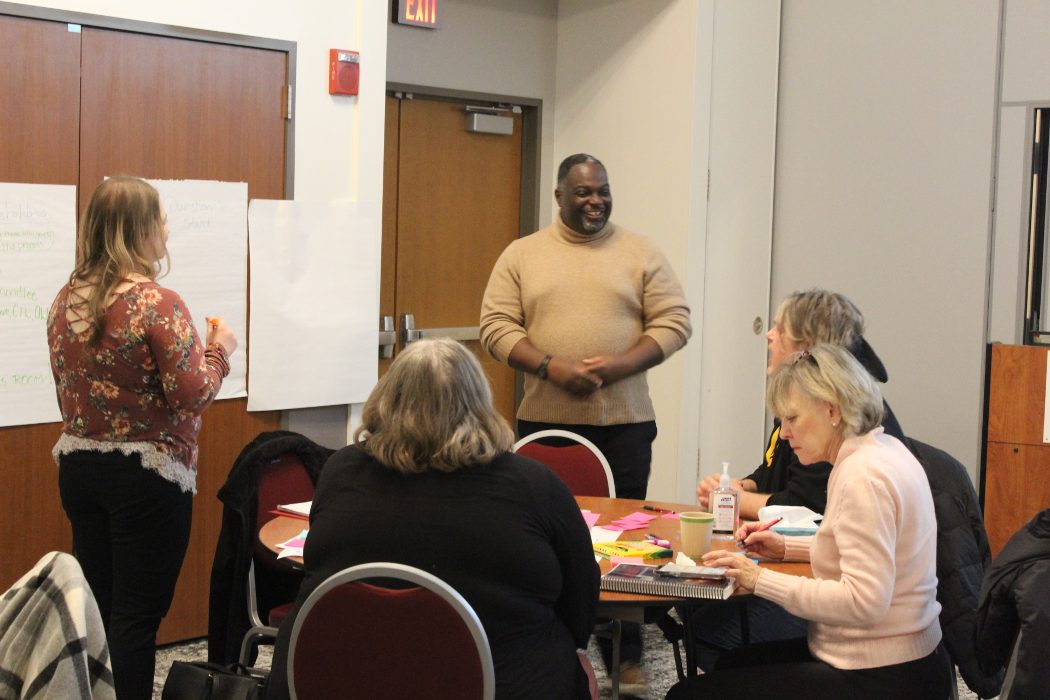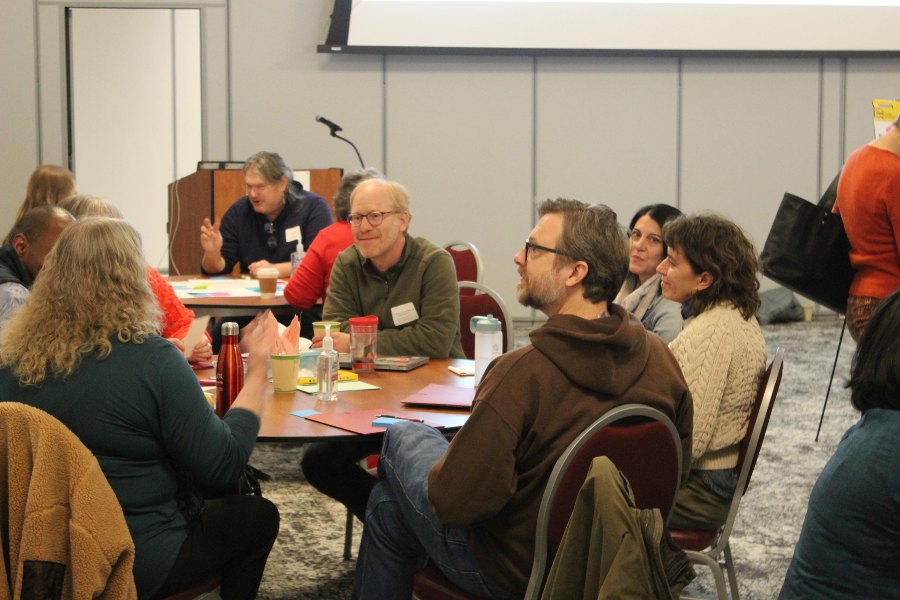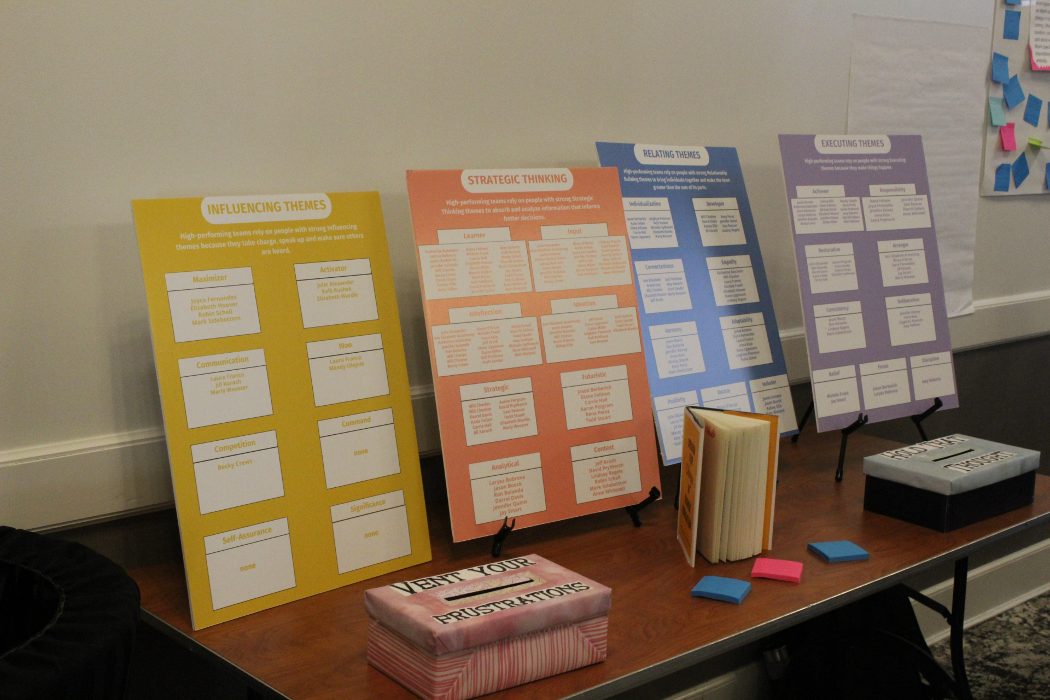Navigating Change: A Recap of the 2024 All-Fellows Change Retreat
For three days in January, anyone walking through the Armstrong Student Center would have seen (and heard) 50 Miami faculty enthusiastically engaging with colleagues from many divisions they had never met before. This work was the Howe All-Fellows Change Retreat, providing a venue for Howe Faculty Writing Fellows alumni to explore and apply theories and methods for enacting change, including sensemaking and design thinking.
Navigating Change: A Recap of the 2024 All-Fellows Change Retreat
 For three days in January, anyone walking through the Armstrong Student Center would have seen (and heard) 50 Miami faculty enthusiastically engaging with colleagues from many divisions they had never met before. This work was the Howe All-Fellows Change Retreat, providing a venue for Howe Faculty Writing Fellows alumni to explore and apply theories and methods for enacting change, including sensemaking and design thinking.
For three days in January, anyone walking through the Armstrong Student Center would have seen (and heard) 50 Miami faculty enthusiastically engaging with colleagues from many divisions they had never met before. This work was the Howe All-Fellows Change Retreat, providing a venue for Howe Faculty Writing Fellows alumni to explore and apply theories and methods for enacting change, including sensemaking and design thinking.
Howe Faculty Writing Fellows
Since its inception in 2017, the Howe Faculty Writing Fellows program has graduated 177 Miami faculty from 37 academic departments. The goal of Fellows is to provide space and opportunity to explore challenges faculty face with their instruction of writing within the contexts of their disciplines. The program has been documented in several books: Changing Conceptions, Changing Practices: Innovating Teaching Across Disciplines and Writing Expertise: A Research-Based Approach to Writing and Learning Across Disciplines.
The All-Fellows Change Retreat was a next step in this work: helping Fellows alumni leverage their expertise to continue to make innovative change across departments and disciplines.
The 50 Fellows who attended were surveyed ahead of time regarding problems they wanted to solve and their visions for innovative teaching and learning at Miami.
Day 1: Opportunities for Innovation
On the first day, Howe Director Elizabeth Wardle and Howe Graduate Assistant Director Rena Perez provided some highlights from change theory. Then participants engaged at opportunity stations based around their responses to the survey. These included:
- Changing processes that impede innovation
- Innovating courses and programs from shared concepts and values
- Aligning promotion, tenure, faculty development, and resources with shared principles
- Creating a sense of belonging and wellness for faculty, students, and staff
- Changing public perceptions of liberal arts
- Bringing all stakeholders into shared work on Miami Plan.
Day 2: Design for Change
On the second day, Todd Stuart (Arts Management and Entrepreneurship), Mark Sidebottom (Mechanical and Manufacturing Engineering), and Jay Smart (Psychology) walked the newly-formed teams through an adaptation of design thinking activities. These included gathering empathy from stakeholders by asking “5 Whys”; formulating 3 How Might We statements; engaging in several rounds of Lotus Brainstorming, and outlining prototypes of solutions and innovations.
Day 3: Moving from Ideation to Action
On the third day, Wardle described some methods for next steps. These included formulating “If/then” statements to identify the conditions that must be in place for the goal to be achieved, and power mapping to identify stakeholders needed for change to occur.
The teams then shared their ideas with the large group and received feedback. Participants ended the day by writing short change plans.
The retreat concluded with reflection on how this sensemaking method can be used within programs and departments to move forward change initiatives. Wardle also reviewed the literature on frictions that impede change and the elements of a project that typically result in change.
Next Steps & National Recognition
Moving forward, the teams seek to maintain new relationships across disciplinary and divisional silos, implement the retreat method in their local contexts, and participate in larger efforts to innovate higher education for the changes it is experiencing.
The methods employed by the Howe Fellows and expanded for the Change Retreat are being recognized nationally as a way to bring faculty expertise into efforts to solve the problems that higher education is facing. The method is being adapted across the 10-college Maricopa Community College District. Lumina Foundation recently announced a $300,000 grant to Howe Director Elizabeth Wardle to take the method to a national audience, beginning with Ohio institutions in summer 2024. Sensemaking for Student Success: A Cohort-Based Faculty Change Method is taking applications from teams across Ohio until April 1.
|
Interested in reading more about sensemaking, change, and design thinking? Here are a few of our favorites:
|
